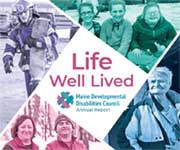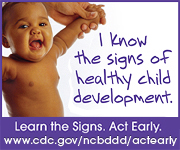Project
CONNECT
Maine Developmental Disabilities Council

FASD/Fetal Alcohol and Substance Disorders
The evidence on the effects of alcohol consumption on fetal development is conclusive, but the many factors that affect outcomes of pregnancies have muddled the conversation about this for years. MDDC is committed to raising awareness on the dangers of drinking alcohol while pregnant, including emerging evidence that FAS can occur without the more overt physical symptoms associated with the syndrome, as well as the understanding that science has yet to determine any safe level of consumption of alcohol during a pregnancy.
MDDC has been meeting with public health experts, representatives from the medical community, and parent advocates to determine the best avenues towards both raising public awareness of this issue and educating medical professionals and policy makers about best practices for both diagnosis and early intervention of FASD, in order to reduce the incidence of alcohol use during pregnancy and create better pathways towards mitigating the effects of FASD on those who live with the disorder.
Some Key Facts and Statistics
- As many as 17.6% of Maine’s pregnant women use alcohol and/or drugs during pregnancy, resulting in roughly 2,300 potentially alcohol-affected at-risk births each year (State of Maine Substance Abuse Treatment Needs Assessment. Maine Office of Substance Abuse, December, 1999, p. ES-9)
- There is no level of alcohol intake or stage of pregnancy established as safe, and many individuals affected by fetal alcohol exposure look “normal” but still suffer from the symptoms of FASD
- FASD is incurable, but with effective interventions people with FASD can live better lives
In July of 2017, MDDC sponsored the Northeast Conference on Fetal Alcohol Spectrum Disorders at Colby College, bringing experts in the field together with stakeholder coalitions and others to talk about the latest data and understandings of FASD, and what that means for Maine. Materials from this event are available for download:
2017 FASD Conference Materials
In the past 2 years, MDDC has been part of a steering group that is working towards several avenues of advocacy and education in Maine on this topic. The steering group includes high-level personnel from the Maine CDC, advocates from several statewide parents organization, parents of children affected by FASD, and medical professionals.
From these meetings, several initiatives have sprung, including some work to have a doctor with expertise in FASD come to Eastern Maine Medical Center to do grand rounds, and work by several parent advocates to start a NOFAS chapter in the state.
In November of 2019, MDDC sponsored a day-long workshop in Augusta titled “FASD Basics – the Neurobehavioral (NB) approach to FASDs”, which was led by author and parent Adrienne Ehlert Bashista.


